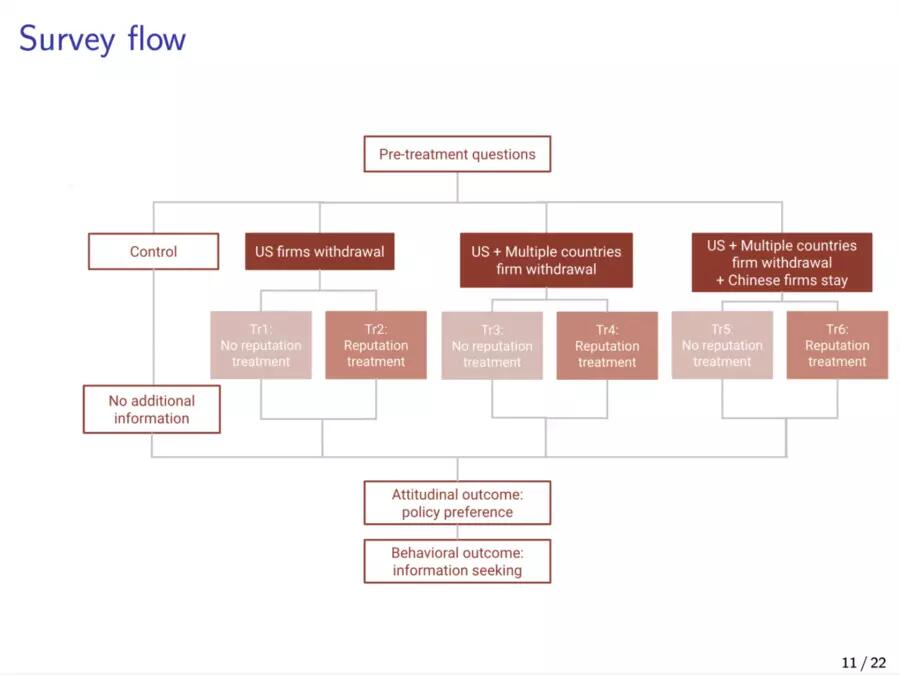
JPOSS #33: “Following Peers and Competitors: How Business Managers Evaluate Firm Withdrawals from Russia”
The thirty-third session of the Japanese Politics Online Seminar Series (JPOSS) took place on November 9, 2022. Yusaku Horiuchi (Dartmouth College) chaired the seminar and moderated the Q&A session.
Christina Davis (Harvard University) presented a paper co-authored with Jialu Li (Harvard University) and Sayumi Miyano(Princeton University), looking at the strategic considerations that factor in firms’ response to international events. In particular, they examine the peer effect of firms withdrawing and competition pressures of firms remaining after the Russian invasion of Ukraine on two outcomes, support for firm withdrawal and information-seeking behavior. Using a vignette experiment, the authors varied factual information on the nationalities of firms withdrawing and remaining in Russia in a survey administered to Japanese employees at the managerial level and above. Controlling for respondents’ firm- and individual-level attributes, they find evidence supporting both theories on the stated preferences of business managers for firm withdrawal. In addition, the authors examined a potential underlying mechanism by appending an additional treatment citing concerns over reputation with domestic and international consumers, investors, and client firms as the reason for other firms’ withdrawal. They find support for a negative effect of this mechanism. On the second outcome of information-seeking behavior, the authors find that respondents presented with information on US withdrawal are more likely to seek information on US public opinion, while respondents receiving information on Chinese firms remaining are more likely to seek information on Chinese government policy.
Kristin Vekasi (University of Maine) and Rachel Wellhausen (University of Texas at Austin) offered insightful comments on alternative interpretations of the survey findings, drawing attention to the survey design and sample of survey respondents. During the Q&A session, participants furthered the discussion by suggesting additional considerations for firm-level characteristics, language used in the survey, and the survey’s mode of implementation.
This event attracted around 32 participants and produced an engaging Q&A session. The organizers would like to thank the presenters, discussants, and participants, as well as the staff at the Harvard Program on U.S.-Japan Relations, who provided administrative support. We look forward to seeing you at the next session of JPOSS: https://jposs.org/
Originally published on the Japanese Politics Online Seminar Series blog. Original publication can be found here.

